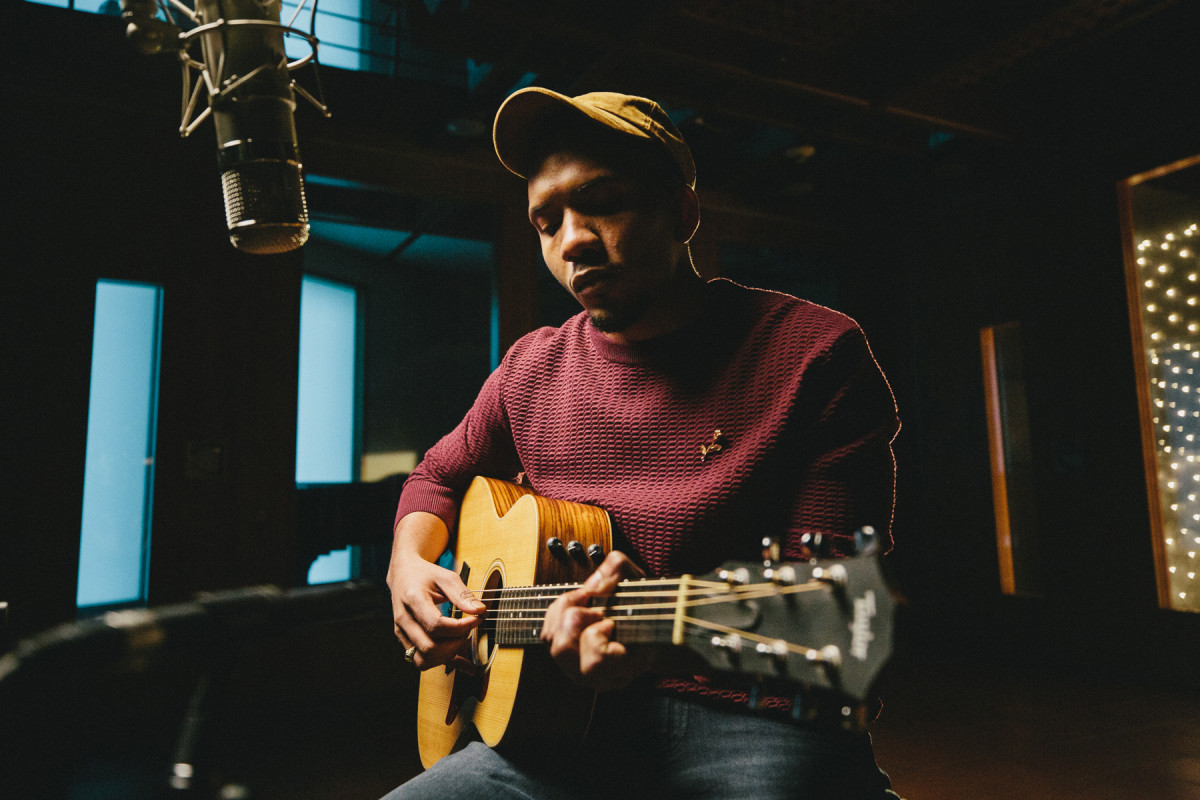[Rolling Stone] – In 2017, the Guyanese singer-songwriter Juke Ross moved to Atlanta, hoping to build on the modest success of his single “Colour Me,” a wounded cry bottled into a delicate ballad.
The three-month stint was disorienting. “I am from Georgetown, the capital city of Guyana,” Ross says.
“It’s very simple, very calm, very quiet.” While Atlanta taught Ross about the wonders of Young Thug, “I really didn’t know how to operate,” he continues. “I struggled, missed my family and friends.”
That dislocation is the subject of Ross’ new single, “Atlanta,” out Friday. The singer delivers straightforward lines about alienation (“the city’s bigger than I’m used to, really makes me miss you”), overload (“promised we’d talk every day, but we don’t ’cause I’m out all night long”), and temptation (“almost sold my guitar for a dance at Magic City”). There is a smidge of Paul Simon in Ross’ lilt, and in the almost New Orleans-parade turn on the drums that precedes the track’s final hook.
Now Ross is living in New York — marooned, for the time being, by the spread of Covid-19. “Being alone here, I thought it would have been better if I was home in Guyana,” Ross says. But he wasn’t able to get on a flight before travel was largely shut down.
As a teen back home, Ross planned to follow his mother, a nurse, into medicine. He played cricket and enjoyed listening to Otis Redding and Bob Marley on the radio. He didn’t own a guitar, and certainly didn’t know how to play one.
But when Ross entered medical school and started studying to become an ear, nose, and throat specialist, he simultaneously left cricket behind and upgraded his internet. “I had a lot of time on my hands,” Ross explains. “I found myself listening to more and more music.”

The singer-songwriter calls leaving medicine a “particularly difficult” decision. “I’m two years into medical school; everyone is calling me doctor at this point,” Ross recalls. “My neighborhood has seen my dedication to this for so long, now I up and say I want to do something different. My family was very much less than thrilled. People try to make their parents proud, and usually that’s by obeying their wishes.”
The relatively quick success of “Colour Me,” the first song Ross ever recorded, seemed like a sign that he was on the right path. But his career has moved forward in fits and starts, perhaps a natural consequence of being an acoustic balladeer at a time when acoustic ballads are distinctly out of fashion.
“Colour Me” earned Ross a deal with Republic Records, but the two parties eventually parted ways. Moving to Atlanta was an important step into the American music industry, but, Ross says, as “a dude from the Caribbean with an acoustic guitar trying to sing folk-pop-soul songs, it was not the perfect fit for me.”
Still, listeners who encounter Ross’ songs continue to find them arresting; he has quietly amassed over 100 million streams on Spotify alone.
“Atlanta” suggests a small step forward, filling in the sparse backdrops in many of Ross’ previous songs. His voice remains plaintive and fragile; this time it’s playing with a slippery rim-shot beat, adding a rhythmic snap some of the early ballads lacked.
Ross is planning to release his debut album in June via RCA. While many promotional opportunities are currently off limits due to the pandemic, his release date may actually work in his favor, since many major acts have indefinitely postponed their albums or pushed them back to the end of the summer.
“New Music Fridays [on Spotify] have been super weak because people are being gun shy,” one major-label A&R told Rolling Stone recently. That might create more opportunities for acts like Ross.






